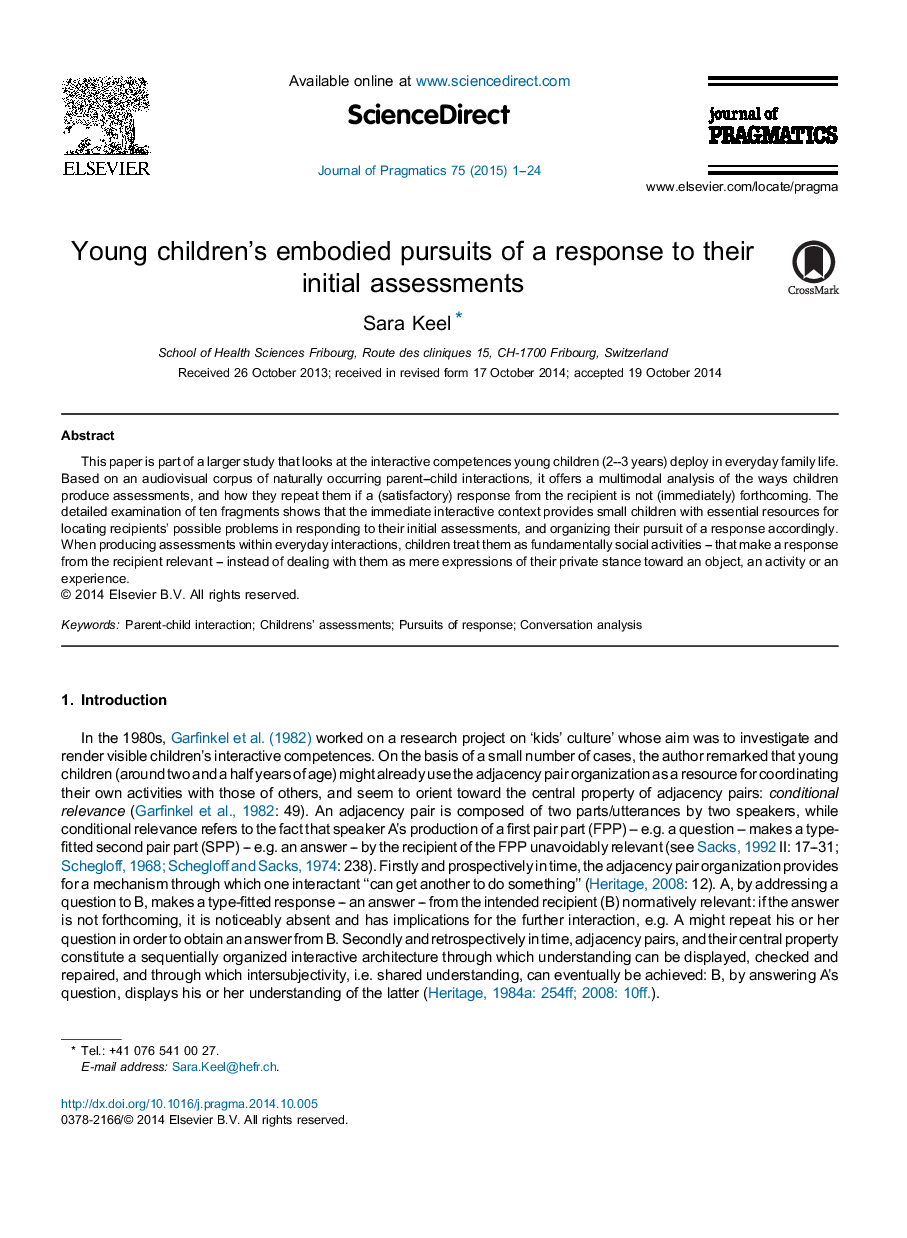| Article ID | Journal | Published Year | Pages | File Type |
|---|---|---|---|---|
| 932671 | Journal of Pragmatics | 2015 | 24 Pages |
•Young children's embodied pursuits of a response to their assessments are described.•Displays of position and affective involvement toward the referent are revealed.•Their linguistic, cognitive and interactive competences in pursuing are highlighted.•Their management of alignment or disalignment with their parents are discussed.
This paper is part of a larger study that looks at the interactive competences young children (2–3 years) deploy in everyday family life. Based on an audiovisual corpus of naturally occurring parent–child interactions, it offers a multimodal analysis of the ways children produce assessments, and how they repeat them if a (satisfactory) response from the recipient is not (immediately) forthcoming. The detailed examination of ten fragments shows that the immediate interactive context provides small children with essential resources for locating recipients’ possible problems in responding to their initial assessments, and organizing their pursuit of a response accordingly. When producing assessments within everyday interactions, children treat them as fundamentally social activities – that make a response from the recipient relevant – instead of dealing with them as mere expressions of their private stance toward an object, an activity or an experience.
